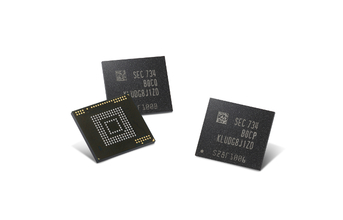
Samsung Electronics has introduced the industry's first embedded Universal Flash Storage (eUFS) solution for use in next-generation automotive applications. Consisting of 128-gigabyte (GB) and 64GB versions, the new eUFS solution has been designed for advanced driver-assistance systems (ADAS), next-generation dashboards and infotainment systems that provide comprehensive connected features for drivers and passengers worldwide.
"We are taking a major step in accelerating the introduction of next-generation ADAS and automotive infotainment systems by offering the industry's first eUFS solution for the market much earlier than expected," said Jinman Han, Senior Vice President of Memory Product Planning & Application Engineering at Samsung Electronics. "Samsung is taking the lead in the growth of the memory market for sophisticated automotive applications, while continuing to deliver leading-edge UFS solutions with higher performance, density and reliability."
Embedded UFS solutions have been used in a variety of mobile applications since early 2015, when Samsung introduced 128GB embedded memory based on the JEDEC UFS 2.0 standard, for the first time in the industry. Since then, the high performance and proven quality of UFS has led to its wide adoption in large numbers of mobile devices from flagship smartphones initially, to also now in mid-market smartphones.
Configured on the most up-to-date UFS standard (JEDEC UFS 2.1), the new Samsung eUFSwill provide advanced data transfer speeds and robust data reliability. For example, the new Samsung 128GB eUFS can read data at up to 850 megabytes per second (MB/s), which is approximately 3.4 times faster than the 250MB/s read speed of today's eMMC 5.0 solutions. It also offers about 6.3 times faster random reading than eMMC at 45,000 IOPS. This will contribute to significantly enhanced performance in upcoming automotive infotainment systems for better managing audio content, increasing navigation responsiveness, accessing Internet-enabled traffic and weather reports, improving handling of hands-free voice commands, and speeding up rear-seat social media interplay.
END


























